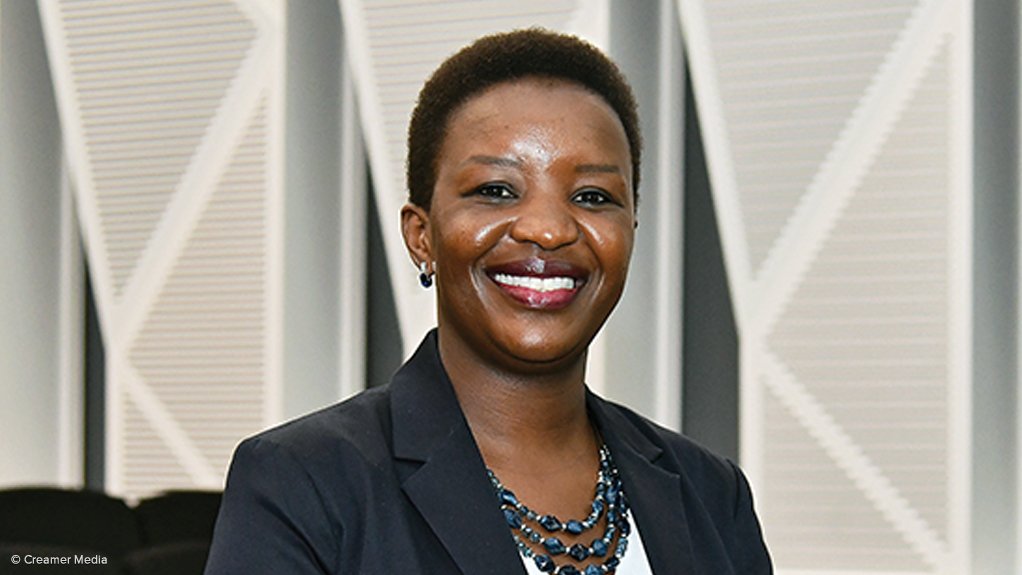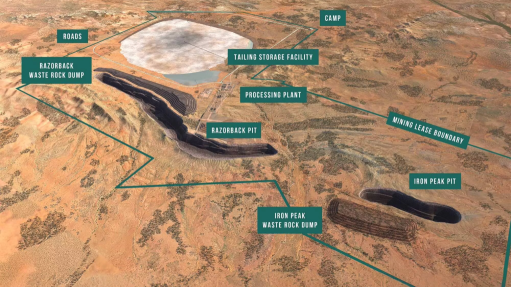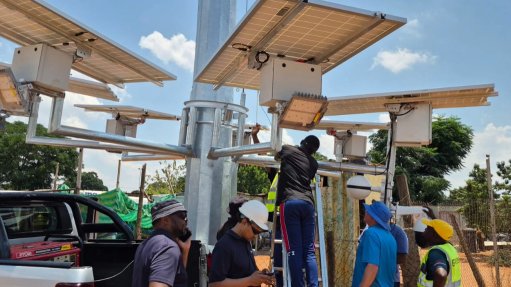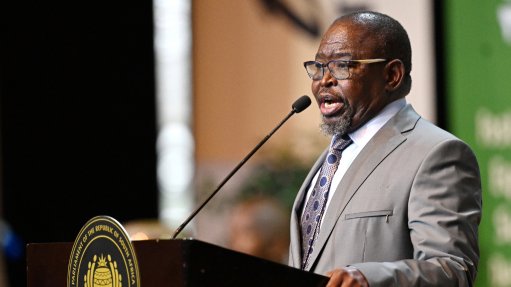Roles of govt, business in restarting economy need clearer definition, says BLSA
In her weekly newsletter, Business Leadership South Africa (BLSA) CEO Busi Mavuso says a clearer perspective on the roles and responsibilities of business and government needs to be established as the country grapples with restarting its economy.
She notes that, on one level, there are common interests shared between business and government and that both parties want a thriving economy that can generate the revenue needed for government to deliver on its political mandate.
However, Mavuso also notes that, without taxes and other revenue, government cannot do its job of eliminating poverty and reducing inequality and that the “astounding” R300-billion fall in revenue (21% less than originally budgeted) that government is now expecting this year is a major constraint on government programmes.
“This is even more problematic because government finances were in bad shape before the crisis anyway, so it cannot borrow as much as needed to make up the difference.”
She says South Africa was not in the same position as other countries which either had minimum debt levels going into the crisis or could raise debt at negligible interest rates. “We were already on the back foot.”
South Africa’s “only option” for getting out of this financial hole is greater economic growth, states Mavuso.
There are, however, deep differences in the nature of the two parties, she points out, explaining that government is a single entity, with a head in the President, while business is not analogous and comprises many entities with many diverging interests.
“Businesses are suppliers and customers of each other as well as competitors.”
In this regard, Mavuso says that when it comes to policy, there can be winners and losers on the business side that make it difficult, if not impossible, to find consensus.
However, there is also a genuine social responsibility reflected in South African business, she posits, noting that this is often not realised, but compared with other countries, South African business is “remarkably willing” to lean in to deal with the crises it faces.
“The Solidarity Fund was an obvious example in the face of the current crisis, with government and business jointly overseeing a vast philanthropic effort, with over R3-billion pledged.”
Mavuso points out that this demonstrates that business thinks beyond its narrow interests, adding that, from a BLSA membership perspective, this is evidenced all the time.
“In our discussions about growing the economy, we are focused on how we build a thriving small business sector, among which our future large companies may be seeded.”
However, there are also shortcomings from the business side. She says business can be efficient, evidenced by the systems and processes that businesses develop to deliver things to market fast and at low cost.
“We can innovate and develop technologies to do that. We can mobilise capital to invest in infrastructure and intangibles like skills and systems.”
Mavuso notes that government has a responsibility beyond that of business, to protect the vulnerable, care for the sick, deliver justice and ensure an even playing field for business. “It also can support innovation through its universities and research institutes, creating knowledge that supports all of us.”
She asserts that government must always put the public interest first and that business must understand that. In this regard, Mavuso says business’ responsibilities should be different to those of government.
“We must advocate for the environment that would enable companies to invest, develop the economy and deliver high-quality products and services to our customers, including to the government,” and that the policy environment would allow that.
Mavuso says business needs to be clear and advocate for investment opportunities and economy development to government.
“We need to show how they align with the public interest. Government has the responsibility to hear us out and to embrace those policies that align with its public interest objectives, while pushing business into finding solutions through good policy design.”
However, she also notes that some policy will constrain business in the public interest and that government must be unambiguous in drawing those lines. But, Mavuso says business understands this and that the time has come to forge ahead and rebuild the economy.
Article Enquiry
Email Article
Save Article
Feedback
To advertise email advertising@creamermedia.co.za or click here
Press Office
Announcements
What's On
Subscribe to improve your user experience...
Option 1 (equivalent of R125 a month):
Receive a weekly copy of Creamer Media's Engineering News & Mining Weekly magazine
(print copy for those in South Africa and e-magazine for those outside of South Africa)
Receive daily email newsletters
Access to full search results
Access archive of magazine back copies
Access to Projects in Progress
Access to ONE Research Report of your choice in PDF format
Option 2 (equivalent of R375 a month):
All benefits from Option 1
PLUS
Access to Creamer Media's Research Channel Africa for ALL Research Reports, in PDF format, on various industrial and mining sectors
including Electricity; Water; Energy Transition; Hydrogen; Roads, Rail and Ports; Coal; Gold; Platinum; Battery Metals; etc.
Already a subscriber?
Forgotten your password?
Receive weekly copy of Creamer Media's Engineering News & Mining Weekly magazine (print copy for those in South Africa and e-magazine for those outside of South Africa)
➕
Recieve daily email newsletters
➕
Access to full search results
➕
Access archive of magazine back copies
➕
Access to Projects in Progress
➕
Access to ONE Research Report of your choice in PDF format
RESEARCH CHANNEL AFRICA
R4500 (equivalent of R375 a month)
SUBSCRIBEAll benefits from Option 1
➕
Access to Creamer Media's Research Channel Africa for ALL Research Reports on various industrial and mining sectors, in PDF format, including on:
Electricity
➕
Water
➕
Energy Transition
➕
Hydrogen
➕
Roads, Rail and Ports
➕
Coal
➕
Gold
➕
Platinum
➕
Battery Metals
➕
etc.
Receive all benefits from Option 1 or Option 2 delivered to numerous people at your company
➕
Multiple User names and Passwords for simultaneous log-ins
➕
Intranet integration access to all in your organisation




















